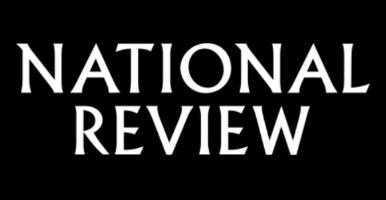This piece originally appeared in National Review on April 11, 2019.
Singing to the always predictable tune of campaign-finance-reform advocates, Democrats have made “transparency” a centerpiece of a 570-page political-“reform” bill with an Orwellian name: the “For the People Act.” The bill passed the House last month as H.R. 1 and now sits in the Senate at S. 949.
“Sunlight,” it is said, “is the best disinfectant.” But too much sunlight causes sunburn, and that, in fact, seems to be one purpose of S. 949’s new disclosure provisions.
Longstanding federal law requires disclosure of the names, amounts, employment, and addresses of contributors to candidates’ campaigns. Through H.R. 1, however, Democrats seek new, unprecedented disclosure of citizen support for non-profit advocacy groups, think tanks, trade and professional associations, and charities if those organizations should — even months and sometimes years after the contribution is made — make public communications that might be deemed to “promote, support, attack, or oppose” a politician. This definition would subsume communications that, say, criticize a politician’s vote on a bill or question a candidate’s ethics. It would include most discussion of public affairs.
Democrats are attempting to sell this parade of disclosure requirements as an urgent question of political transparency. “Transparency,” they argue, is inherently beneficial, and thus there is no cost to its expansion. This is a misguided narrative.
A study by University of Missouri professor Jeffrey Milyo suggests that mandatory disclosure of political activity would result in a drastic decline in political participation. Indeed, nearly 90 percent of the study’s participants — all college-educated — indicated that intricate disclosure requirements and threats of legal penalties would deter them from engaging in political activity.
Indeed, as a matter of first principle, we should question whether people are entitled to knowledge of others’ political associations and contacts. It is often argued that people have a right to know who is trying to influence them. In fact, as a general rule, they don’t. People have a right to participate in public affairs, but they have no right to know the details of how their fellow citizens, or groups of voluntarily associated citizens, choose to exercise that right. We have made a narrow exception to that general rule for speech that specifically advocates the election or defeat of a candidate, and for contributions to fund a candidate’s own campaign. But we have never accepted that the government — or our neighbors — have a broad right to know about our political activities.
Debates, discussions, and ideas are often funded by groups that would like to see robust conversation on topics of interest but may want their involvement to remain out of the limelight. A republic premised on the free flow of information in the public interest should readily embrace, and not vilify, this. Not only is “knowing who’s really behind it” a far more useless metric than the substance of the idea presented, but forced disclosure severely harms those who wish to argue for momentarily unpopular ideas without exposing their personal lives to invasion by offended majorities or those in positions of state power. Requiring all speakers and funders to identify themselves would chill speech and turn our public forum into an echo chamber, where the only people comfortable speaking would be those with popular views. This, of course, makes a mockery of the First Amendment, which was designed specifically to protect unpopular and “offensive” views.
This is hardly a novel argument. In the seminal 1958 civil-rights case, NAACP v. Alabama, the Supreme Court struck down Alabama’s effort to force the NAACP to disclose its members and donors. A unanimous Court recognized that confidentiality of members’ identities was inextricably linked to their right “to pursue their lawful private interests privately and to associate freely with others in doing so.” The Court saw what Milyo’s study shows empirically and what we should see intuitively: People with unpopular views are entitled to constitutional protection and political participation on par with everyone else. To prevent their views and associations from forming the basis of social, economic, or personal retribution against them, those holding minority views often prefer to exercise their civil and political rights anonymously, as Americans have done since the Founding.
This fear is particularly relevant in this era of rampant “doxing.” Personal information has never been more accessible, and people have recently resorted to invading the private and professional lives of those whose political views they find intolerable. Given all the death threats, risks to family members, calls for people to be fired, and personal relationships strained by politics, the value of political anonymity is higher today than at any time since the McCarthy era. Requiring people to choose between participation in the political process and a private personal life will lead to a situation where the only ideas in the public square will be those deemed acceptable by the prevailing political majority.
When Senator Joseph McCarthy ruthlessly pursued alleged Communist sympathizers to confess their political associations, it was the Left that argued against forced disclosure. Today, the Left has taken on the McCarthyite mantle. People who wish to keep their jobs, families, friendships, and private lives secure are entirely justified in fearing both public and private retaliation if they express unpopular political views. Perhaps that is exactly why we should hear those views and encourage them to be voiced without such fear.
From their powerful perches in Congress to their (ironically) anonymous online comments, advocates of broad disclosure requirements argue that people need to toughen up and be “held accountable” for their opinions. But when “holding someone accountable” has come to mean efforts to make life generally unpleasant, through doxing, threats of or actual governmental retaliation, and even physical violence, we might begin to see the merits of allowing people to engage in the civic and political arena without sacrificing the sanctity of their personal lives. Participation in the marketplace of ideas is, after all, as much for the politically timid as it is for the bold.













